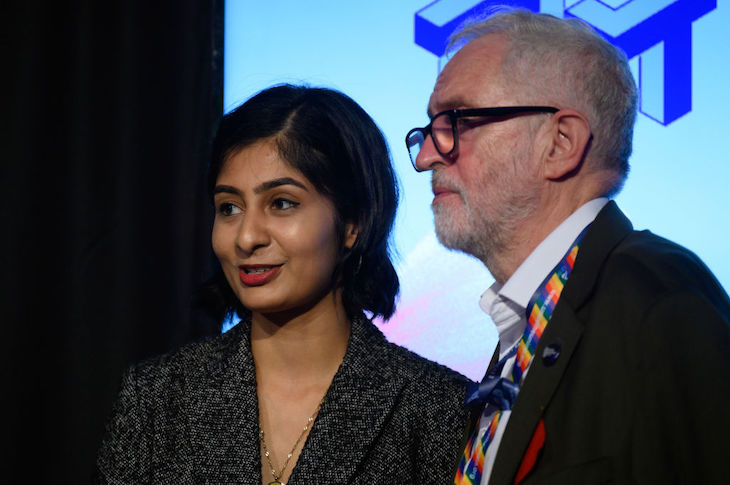Syria’s new constitution quickly drew a lot of criticism. Signed by President Ahmed al-Sharaa last week, the document aims to help guide the country through the next five years following the ousting of the dictator Bashar al-Assad. Yet many in the country have already rejected it, claiming it gives the president too much power, promotes an Islamist agenda, and fails to address the concerns of religious and ethnic minorities.
The new constitution claims it is ‘based on the principle of separation of powers’, but in practice, this does not appear to be the case. Al-Sharaa as interim president will wield the executive power. But he will also appoint a third of the parliament, while the other two-thirds will be selected by a committee. The members of this committee will also be chosen by al-Sharaa. Similarly, the members of the highest legislative body, the Supreme Constitutional Court, will be selected by the president too. In other words, al-Sharaa is set to maintain strict control of all powers of the state without any checks and balances.
People are tired of dictatorship after 54 years of Assad family rule
‘Ahmed al-Sharaa declared a constitutional committee on 2 March, and on 13 March, the constitution was ready. So in 11-12 days. That amount of time might not even be enough for people to turn in a class assignment,’ noted Mohammed A. Salih, a non-resident Senior Fellow at the Philadelphia-based Foreign Policy Research Institute and an analyst of Kurdish affairs.
‘Having the constitution of a country for which over half a million people have died in order to overthrow the dictatorship, being drafted in such an extremely non-transparent manner without any sort of serious debate by a committee that is not really representative of the Syrian society and that was put together by Ahmed al-Sharaa himself, should call for serious concern.’
Not everyone is so pessimistic. ‘Constitutional Declaration is a suitable platform for the launch of the Syrian state,’ said Mousa al-Omar, a former TV presenter with close links to the president. ‘Syria today needs a strong centralisation, especially by limiting weapons to the state, integrating the factions into the Syrian army.’
Many Syrians agree that after 14 years of brutal civil war, there is now a need for a strong pair of hands that can keep the country together. No one wants to continue the war or follow the failed models of sectarian power-sharing in Lebanon or Iraq. But people are also tired of dictatorship after 54 years of Assad family rule. As Mohammed A. Salih points out, even the constitution under Assad mentioned the word ‘democracy’ a few times, while the new one does not even once.
The interim constitution is not a secular one either. It clearly states that the ‘religion of the President of the Republic is Islam, and Islamic jurisprudence is the principal source of legislation’. Syria’s population is highly diverse. While Sunni Muslims represent the majority, there are also Christians, Alawites, Druze, Shia Muslims, and others.
‘[Al-Sharaa] and his group come from an extremist Islamist background,’ explained Mohammed A. Salih. ‘They ruled the Idlib province for several years before overthrowing Assad. If you go back to how they ruled Idlib, it’s very obvious that their model was an ultra-conservative, radical Islamist model of governance. There was a video that surfaced of the current minister of justice in the Syrian government where he was overseeing the stoning of two women on the streets publicly in Idlib.’
The document stresses the freedom of religion and equality among sects, but the context here is important. Literarily just a few days before these words were signed, members of the new government’s security forces massacred hundreds of Alawites, most of them unarmed civilians. This minority is often held responsible for the crimes of the former regime, as the Assad family and many officers in the army were also Alawites.
‘I don’t trust this constitution!’ said B.K., a Syrian living in Ireland, who asked for his name to be hidden. Last week, 13 members of his family were killed for being Alawites. ‘Now you cannot even light a cigarette in the street. Yesterday, my brother sent me a photo of his neighbour’s shop: they blew it up because he was smoking.’ He was hopeful for his homeland when Assad fell, but that hope is gone.
Alawites are not the only ones who do not feel reassured by the new constitution. ‘It’s very unfavourable for the Kurds,’ said Mohammed A. Salih. ‘The Kurds have been really oppressed since the very beginning of the post-independence Syrian state in 1946. There was hope that the new Syria would be different, that it would acknowledge the existence of Kurds. Making no explicit reference or giving no guarantee of respecting the use of languages other than Arabic in that country is a huge disappointment to the Kurds.’







Comments